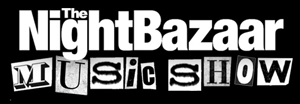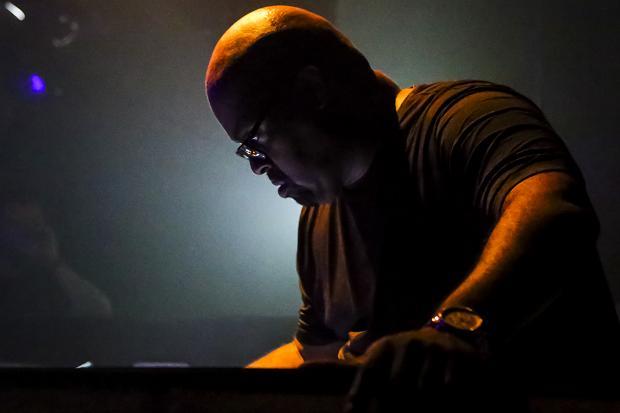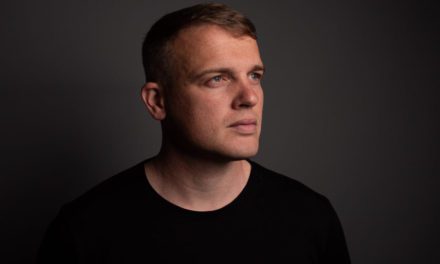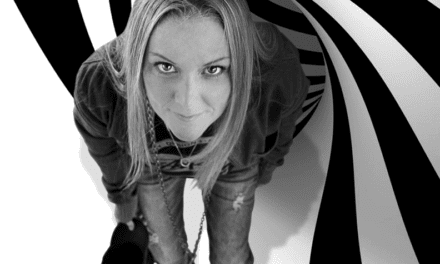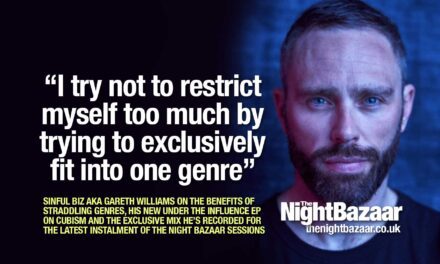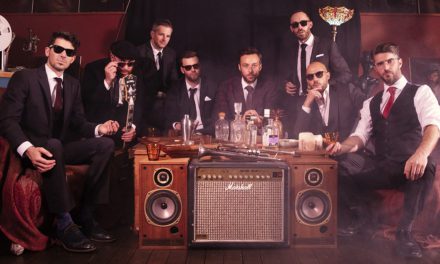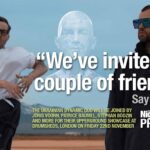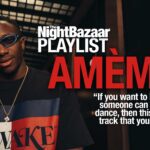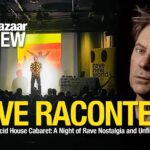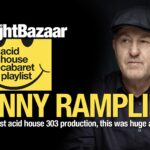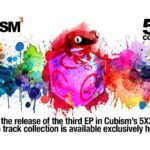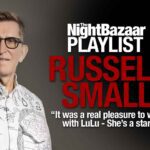EVERYTHING you need to know about the history of house could probably be gleaned by learning something of the life and times of the late Frankie Knuckles.
Knuckles was respectfully know as the ‘Godfather of house’ and played a pivotal role in the development and popularisation of the house music scene.
rom the black, gay underground clubs of 70’s New York, a young Knuckles emerged as an inventive DJ schooled in Soul,Disco and RnB alongside his maverick contemporary DJ Larry Levan. His passion for music in all its forms help to shape his future musical direction.
Moving to Chicago at the end of the decade he took up residency at the Warehouse Club. Here he began to experiment with the raw material of sound itself, re-editing and extending tracks using a reel to reel tape recorder. This gave Knuckles the ability to engage his audience in new and intense ways.
By the early 80’s knuckles was adding pre-programmed electronic rhythms to his DJ sets at The Power Plant, for the audience this was revolutionary. College kids picking up on these new beat edit techniques being used in the clubs began calling it ‘house music’.
It wasn’t long before Knuckles applied his dance floor knowledge to his own productions.
His first tracks in collaboration with house auteur Jamie Principle, are now considered to be classics of the genre. ‘Your Love’ and ‘Baby Wants To Ride’ are records that still reverberate with many people today. The list goes on. ‘Tears’ featuring Robert Owens and the easy charm of ‘The Whistle Song’ set a template for a soulful, and deeply infectious new electronic music. In the late 80’s these Chicago records were taken to heart by a burgeoning Uk Acid House scene, Chicago House was well and truly on the map.
In 2005 Frankie Knuckles was inducted into the Dance Music hall of fame for his achievements as a DJ and successful producer.
Frankie Knuckles continued to DJ regularly right up until his unexpected, sad passing on March 31st 2014 . Clubz was fortunate to catch up with him for an in-depth chat while he was in London in 2012.
Originally published on November 14, 2012 you can read the fascinating interview here.
Growing up in New York in the 60’s what early musical influences were engaging the young mind of Frankie Knuckles?
Apart from all the usual Motown that everyone else was listening to I was listening to more mature music like Bosa Novas by the likes of Sergio Mendez & Brazil 66, Jao Gilberto, Wes Montgomery and early productions by Thom Bell & Linda Creed who wrote for The Stylistics and a lot of the pre-Philly International recordings.
You were very close with fellow Legendary DJ Larry Levan who is often cited as the greatest DJ of all time, what made him so special?
Larry was much like a Butterfly. Beautiful and elusive. There was a quality and attractiveness to the music he chose to play that automatically made you accept him and it. He was one of those rare special people that came into your presence and you knew it. He didn’t warm up to people easily but the moment he did you had a friend for life. You wanted to do any and everything for him. When he’d get behind the decks it didn’t matter how well he put 2 records together. He always played the right tune at the right moment. Oh, and if he loved the tune he would literally play it 10 times throughout the night.
Could you tell us a bit about the atmosphere and people that attended Warehouse and Power Plant in the early days?
It was the late ’70s early 80s. Music and fashion was in transition. In Chicago the trend amongst young hetero college age kids were to dress and act Gay (even though they weren’t). It made them appear to be freakishly androgynous when would easily gain entrance for them to the hippest and trendiest Gay clubs of the day. The Warehouse & The Powerplant were fairly simple venues with great sound systems. The people created the atmosphere and the beauty of what both these clubs were about. You also have to remember it was also the post-punk era so as much as music was in transition so were people and how they partied.
I’ve heard you describe nightclubs as a Poor Mans Paradise, which of all the clubs you played at embodied this ethos most for you?
Let me correct the statement. Back in the 70s living in NYC while the city was in default the only urban escape was dancing the night away at places like The Loft and The Gallery for most people. People worked hard but couldn’t afford holidays so, they’d choose one day on the weekend and one club to go to. Those in better positions would club hop on the weekends. The bottom line, it was the easiest escape for all of us growing up in NYC. This recreation is what created early club culture in NYC.
House music seemed to emerge from DJ’s producing their own edits, was production always an ambition or were you simply responding to your audience?
Yes. Coming on the heels of working as a club DJ for 10 years I felt like I needed to make some additional changes to what I was doing. Playing records was great but not enough. I felt moving into production was the logical next step. Once Disco was declared dead in Chicago and ultimately nationwide I found myself re-editing current favourites just to keep my audience interested in coming back to the Warehouse week after week. I taught myself to edit tape and recreate a lot of the music I was playing. It got the attention of the music industry in NYC and I got my first professional remix offer, ‘Let No Man Put Asunder’ by First Choice.
A young Derrick May used to come and watch you play at the Powerplant, I read he sold your first drum machine a Roland 909, what other bits of gear were crucial in creating the Chicago house sound?
He did come with a caravan of folks from Detroit to The Powerplant. We had mutual friends and after a while we became close. On one of his visits he brought me a gift. It was a Roland 909 drum machine and told me I needed to think about adding it my sets while I was playing. The rest as they say is history.
What was the energy like between Chicago and Detroit artists in the early days?
I cannot tell you. I lived in Chicago and I didn’t spend much time in Detroit. But lots of folks from Detroit would come to Chicago. I would imagine the energy was similar. Midwesterners are fairly simple people but like people all over the world they party like the best of them.
When you first listened to Jamie Principle’s demo of ‘Your Love’ did you know it was going to be a seminal track?
I knew that it was something special but I didn’t foresee that it would have the impact that it has.
What has it been like collaborating with Jamie Principle again after all these years?
There was a great time and distance that was forced between Jamie and myself. But once we got back together it was almost as if time had stood still. We picked up from where we left off with a bonus. Technology had caught up and so did age. At an advanced age we learned to appreciate each other as friends and colleagues.
When did you first become aware of a house music scene emerging in the UK? Did you expect it to become as popular as it did?
No. I don’t think anyone could’ve foreseen this happening.
Did you enjoy playing in the UK during the heady days of Acid House, how did it differ from the scene in Chicago?
There has never been a time that I haven’t enjoyed playing in the UK. The people in the UK have always embraced me and allowed me to grow musically. The respect level has always been mutual and enormous. And because of this I’ve always tried to remain true to who I am as a DJ and music producer. As much as it would have made sense to other industry officials if I had followed trends and went with which ever way the wind blows, I think ultimately I would’ve lost the respect of people at a street level for abandoning who I am essentially. In popular dance music there’s always something new and there’s always someone trying to re-invent the wheel. But when the populace bores of the current trends things always come back to House Music at its purest form. With great songs, great energy and incredible productions.
Many of your production have stood the test of time, what are the key ingredients in a Frankie Knuckles house production?
The song comes first, then, the vocal performance and finally the production. The quality of every production is so very important to me. It’s necessary for me that each tune sounds as good 20 years from now as it does today. How I achieve that is by not following trends but staying true to what’s great about music. The song.
Which contemporary dance music artists are you digging at he moment?
Of the women, ladies like Ultra Nate, Inaya Day, Yasmeen Sulieman strike the biggest chord. Not only are these girls serious performers but they are incredible songwriters also. Each one of them can back up in live performance what they deliver in the recording process. And amongst the men, there’s B.Slade, Colton Ford, Kenny Bobien and the list goes on. I’m so turned on by working with an artist that can back up their product. Technology has taken over so much of how this music is made it’s necessary to have an element that will lift it above it all. That’s the human voice. And when you marry the two and that artist can deliver that same performance or better, live, it all lends a certain legitimacy to the work us house producers are making in the trenches.
You are playing in London at XOYO on Friday, do you still enjoy the energy from the crowd that you get in this city?
Absolutely! This is the best part of being myself. I have an audience that trusts me enough to support me, I can test new material with them with no problem. Plus, it gets me back to being with old friends.
Although you have been such an important pioneer in the development of the house scene you don’t seem nostalgic about the past, you always appear to be moving forward, what does the future hold for Frankie Knuckles?
I can’t live in the past. Too many important people that helped me get to this day lived in the past. I don’t know why I’m always looking or moving forward. I guess it’s the natural order of things.

